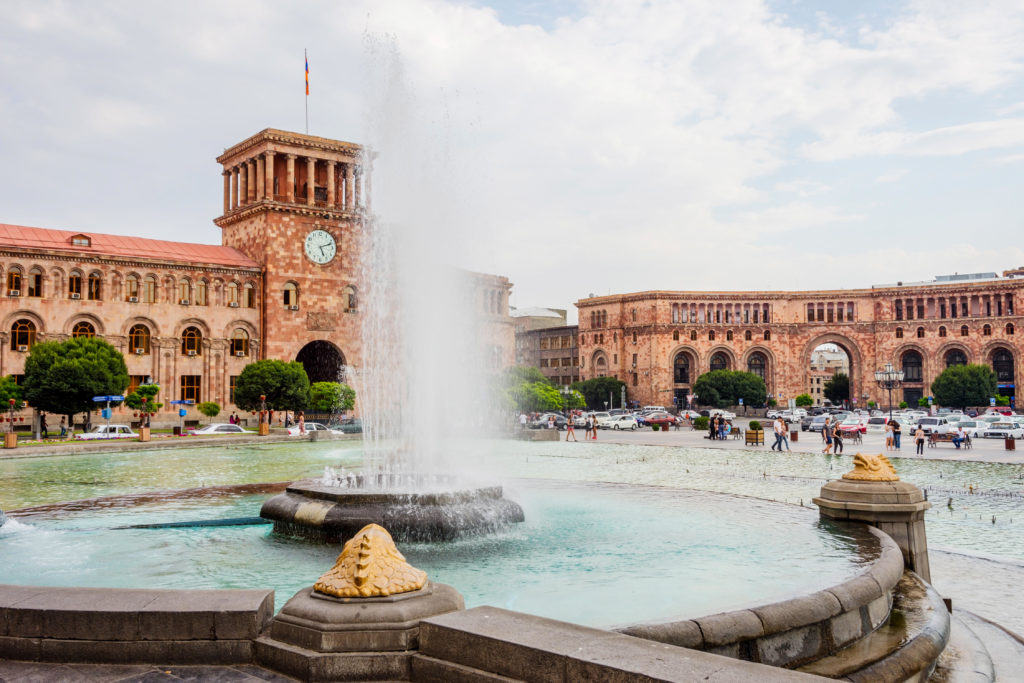YEREVAN
The International Monetary Fund (IMF) said it had approved a $72 million loan to Armenia to support economic reforms in the ex-Soviet country under the Fund’s three-year stand-by arrangement (SBA).
The Fund said that Armenia’s gross domestic product (GDP) growth was expected to reach 5.5 percent in 2021 and 5.25 percent in 2022, while inflation was projected to moderate in 2022 from its recent highs.
According to the IMF, the completion of recent reviews of the country’s economy would allow the authorities to draw $72 million, bringing total disbursements to around $396 million. Armenia’s three-year SBA of around $432 million, equivalent to 239.75 percent of Armenia’s quota in the IMF, was approved by the Fund’s Board on May 17, 2019.
Armenia’s economy has expanded by 2.7 percent in the third quarter of this year, backed by a rise in prices for commodities on world markets, growth in agriculture and robust tax collections figures.
Gross domestic product (GDP) grew by 25.2 percent in July-September compared to the second quarter of this year.
The country’s economic activity grew by 4.3 percent in the first 10 months of 2021 compared to the same period last year, supported by the growth in almost all sectors of the economy.
“Following the deep recession in 2020, Armenia’s economy has begun to recover despite ongoing challenges. Uncertainty, however, remains high, including over global economic and financial conditions and the trajectory of COVID-19, and it remains important to strike an appropriate balance between the withdrawal of targeted policy support and the rebuilding of medium-term buffers until the recovery is firmly entrenched,” Bo Li, Deputy Managing Director and Acting Chair, said in a statement.
The IMF said that the government’s 2021-2026 reform programme provided an essential framework to future prosperity and inclusion. Efforts to improve the business environment, increase financial access for SMEs, create space for priority social spending, and policies to mitigate and adapt to climate change can support higher sustained and inclusive growth. In this regard, an action plan should be developed to support robust and timely reform implementation with its costing well integrated into the medium-term expenditure framework, The Fund said.
Inflation is expected to begin moderating by mid-2022, as the effect of supply-side and external shocks dissipate, and recent monetary policy actions have their full impact.
The draft 2022 budget balances near-term support with the medium-term needs for higher capital spending and is in line with Armenia’s fiscal rules and the need to rebuild fiscal buffers over time. Robust exports and remittances are expected to narrow the current account deficit in 2021.
Earlier this month, Armenia’s central bank has downgraded its economic growth forecast to 4.2 percent from its previous projection of 5.4 percent in 2021 due to a slowdown in the agricultural and industrial sectors.
The World Bank predicts 6.1 percent growth in 2021 and 4.8 percent in 2022.
In May, Fitch Ratings affirmed Armenia’s long-term foreign-currency issuer default rating (IDR) at ‘B+’ with a stable outlook.
Fitch Ratings said in July that Armenia’s economy would experience a moderate recovery this year and next as the country returned to growth after the COVID-19 pandemic and the war with Azerbaijan.

